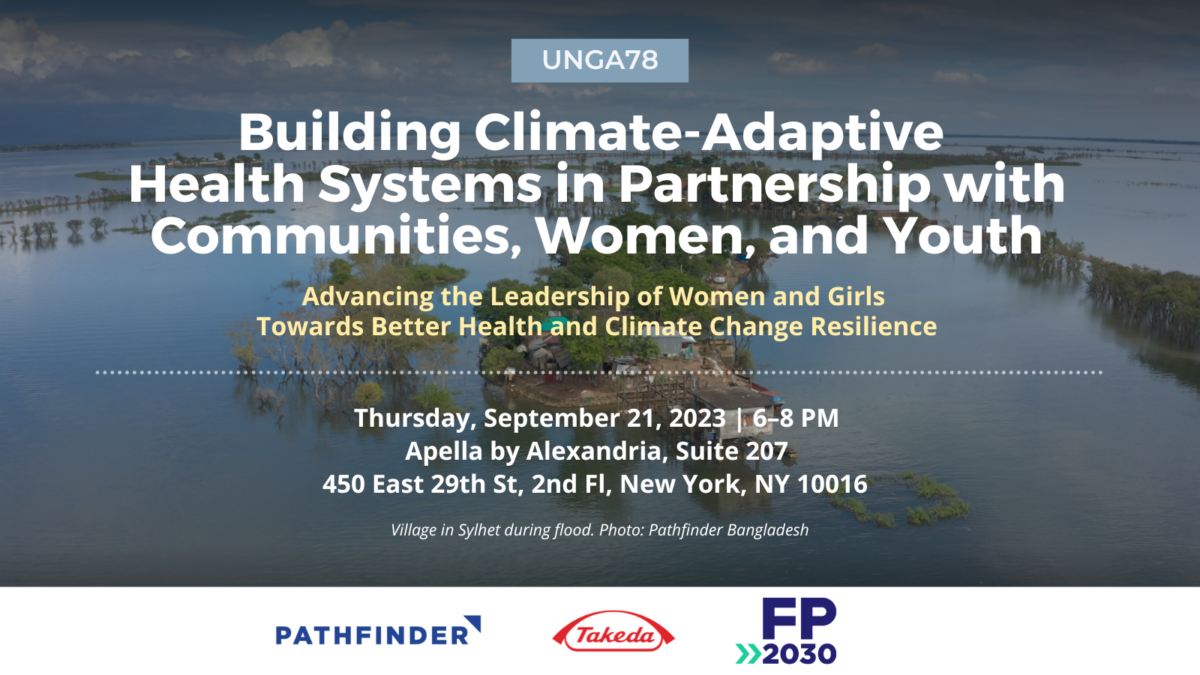
Building Climate-Adaptive Health Systems in Partnership with Communities, Women, and Youth

Space is limited at this UNGA78 side event. Please RSVP to reserve your spot. Refreshments will be provided.
Climate change has far-reaching implications on every aspect of life, particularly health. From heightened food and water insecurity, to added strain on overburdened health systems, to increased risk of non-communicable diseases and pandemics, climate change threatens to undo decades of progress in global health. This includes progress toward achieving universal health coverage. Furthermore, these negative impacts are not gender neutral—climate change exacerbates existing inequities, meaning women and girls are more often disproportionately affected.
Because women and girls stand the most to lose, it’s of utmost importance that we make investments in women’s leadership now—so we can ensure that women and girls are elevated as changemakers in their communities and that they have the tools to implement resilient, local, and rights-based solutions to climate adaptation.
The event will be an opportunity to share promising models, approaches, and emerging solutions for sustaining and strengthening health systems through the climate crisis. The panel and audience will explore how the leadership of women and girls can contribute to achievement of national climate change commitments and implementation of related policies. Discussions will highlight the collaborative efforts of governments, UN agencies, civil society, and donors – while bringing forth the voices and experiences of women, youth, and their communities. The panel will demonstrate how health systems, particularly local health facilities and community health workers, can work with communities, women, and youth to improve access to quality services, including during crises caused by climate change.
